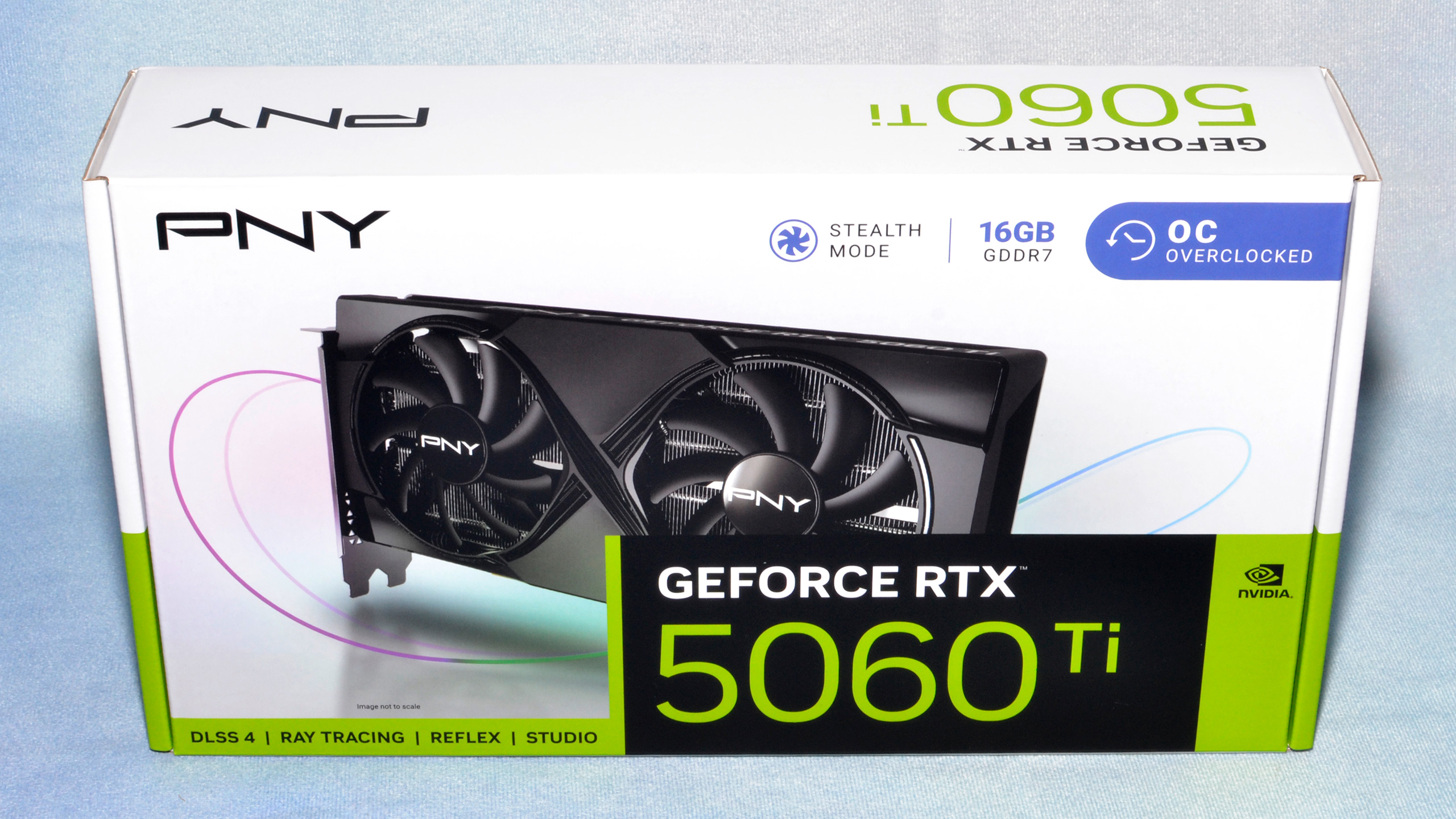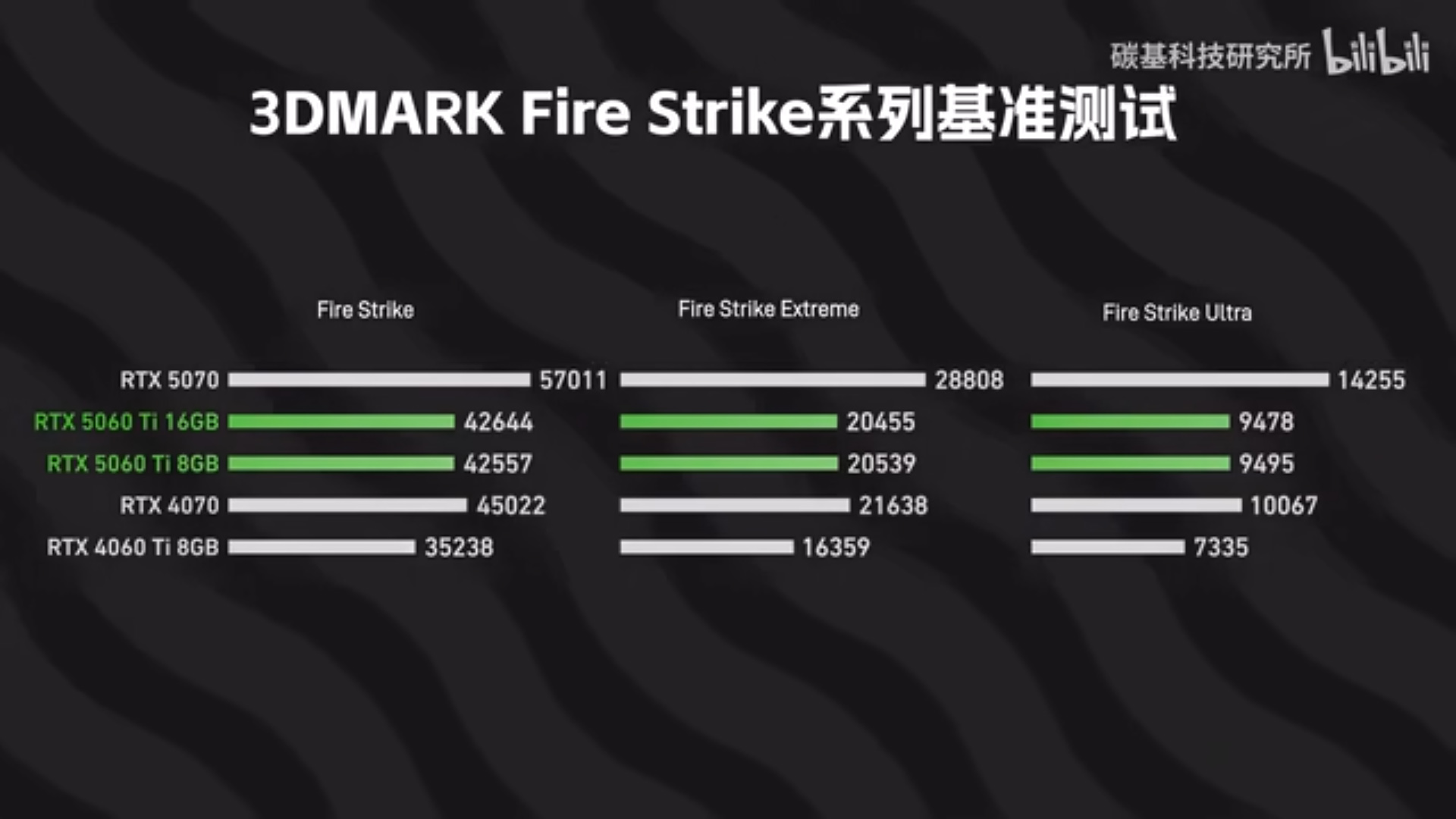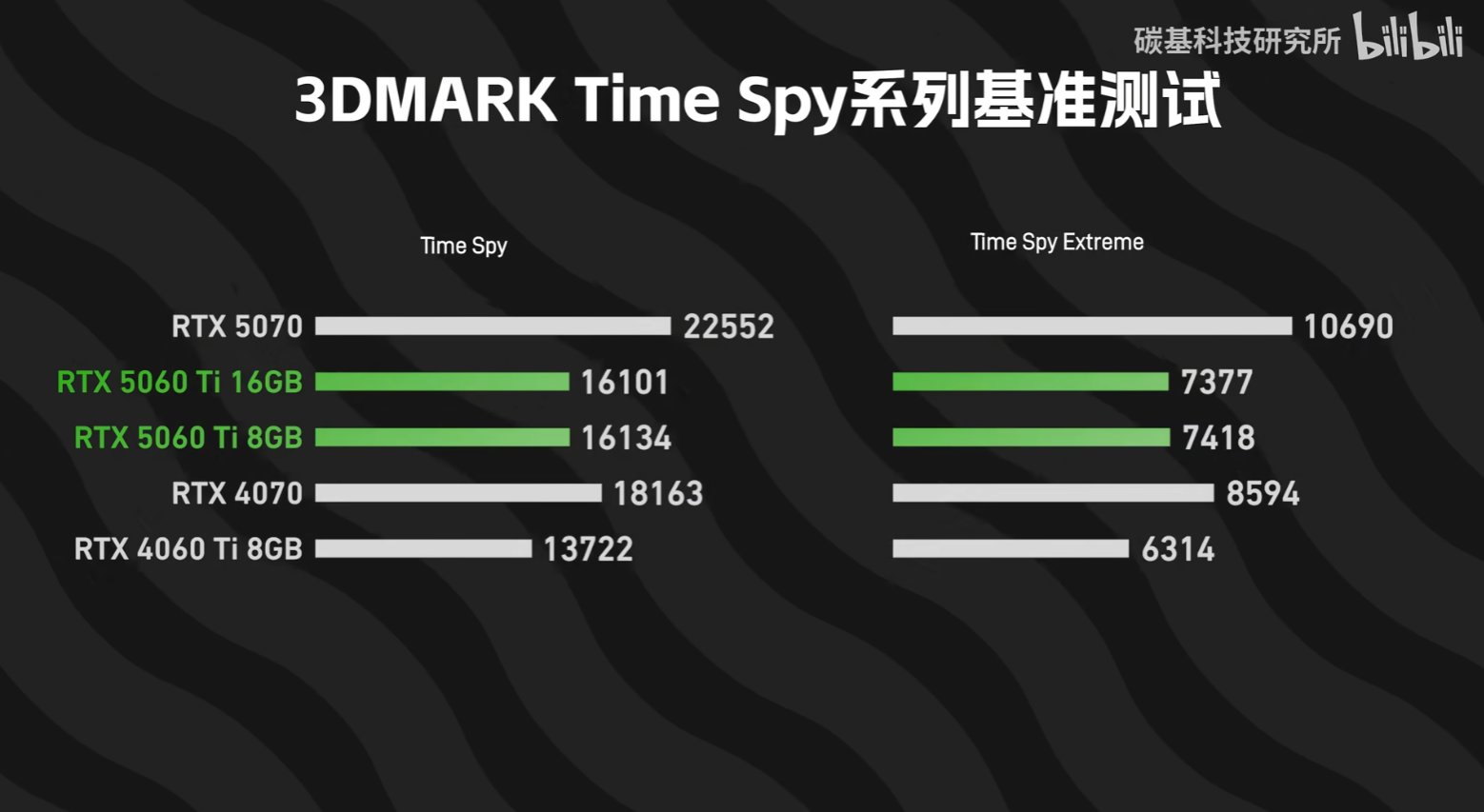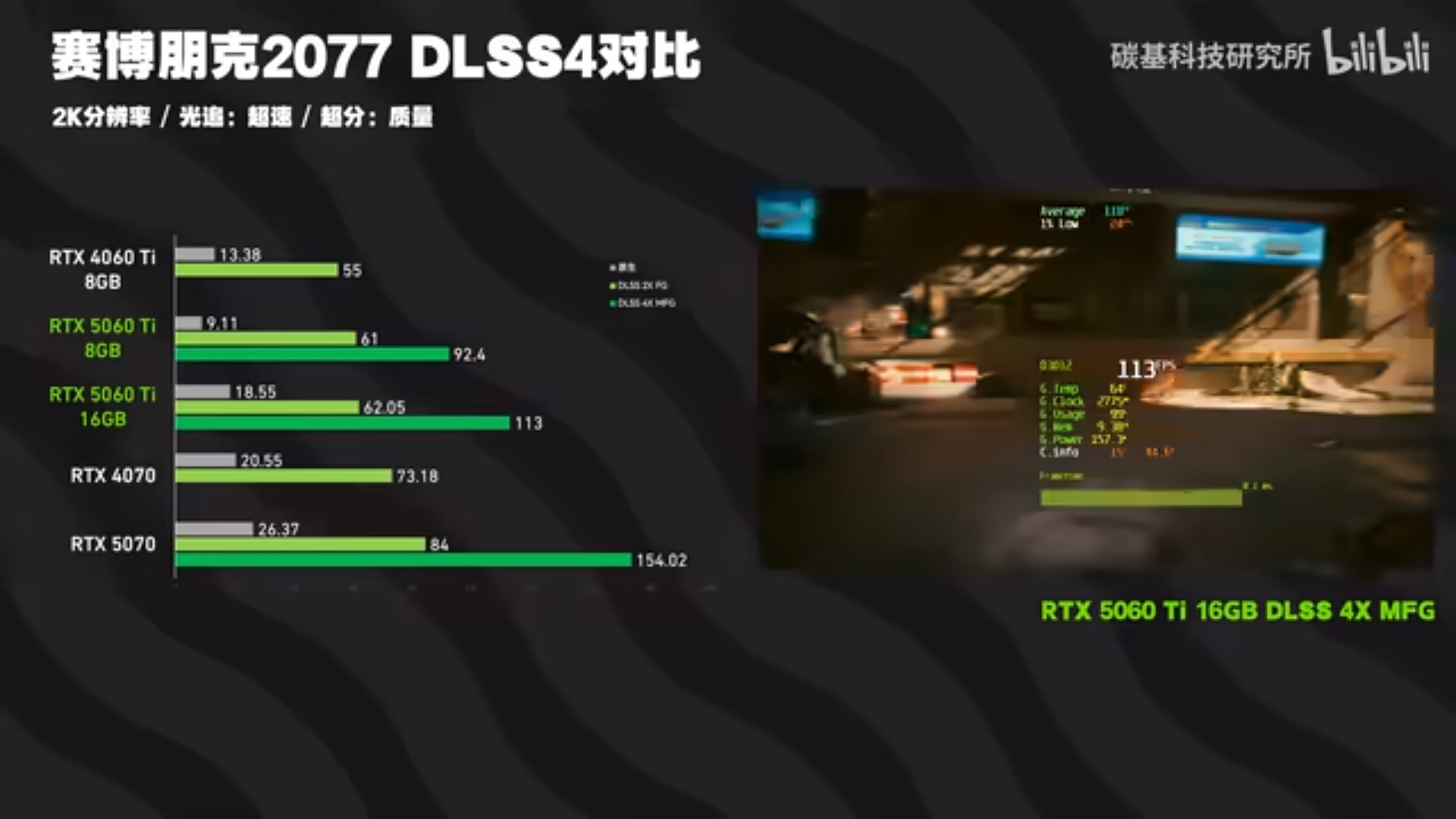Reviews show the Nvidia RTX 5060 Ti 8GB matches the 16GB model in most tests, falls behind in DLSS 4
A perfect example of why 8GB VRAM isn't enough for modern games.

Nvidia’s launch of its entry-level RTX 5060-series GPUs is, unsurprisingly, off to a messy start. While we reviewed the 16GB version of the RTX 5060 Ti, reports and our own outreach to AIBs (add-in board partners) suggest that Nvidia is restricting access to the 8GB version of the card. Samples for 8GB cards weren't sent out, leaving reviewers scrambling to try to pick one up at retail — which is difficult when the cards all immediately sold out. Despite those difficulties, a review by the Carbon-based Technology Research Institute on Bilibili offers some insight into the kind of performance users can expect from the lower VRAM variant.
First spotted by @harukaze5719, the video includes test results of two Asus-branded triple-fan RTX 5060 Ti GPUs — one with 16GB and the other with 8GB of VRAM. Most synthetic benchmark results suggest that the increased VRAM doesn’t significantly impact performance. For instance, in the 3DMark Fire Strike suite of tests, the 8GB model delivered results nearly identical to the 16GB version. Notably, both GPUs show a 20–30% performance boost over the RTX 4060 Ti 8GB and are about 5% slower than the RTX 4070.


The trend continues in 3DMark Time Spy, where the 8GB model once again posts figures nearly matching the higher VRAM version. Both RTX 5060 Ti models are around 18% faster than the RTX 4060 Ti and roughly 12–14% slower than the RTX 4070. That's basically in line with our own 16GB testing.
The review also features gaming benchmarks at 1080p and 1440p resolutions, where the 8GB variant remained closely competitive with the 16GB model in titles like Cyberpunk 2077, Resident Evil 4, F1 2024, and Final Fantasy XIV. Interestingly, the 8GB card slightly outperformed the 16GB card in Counter-Strike 2, while the 16GB version delivered noticeably better results in Horizon Zero Dawn. Across 14 tested games at 1080p, the review shows the RTX 5060 Ti 8GB being 16% faster than the RTX 4060 Ti 8GB, and the 16GB model 19% faster than its predecessor. At 1440p, the 5060 Ti 8GB came out 17% faster, while the 16GB version pushes ahead by 21%.

With the RTX 50-series, Nvidia’s main talking point is DLSS 4 with Multi-Frame Generation (MFG). While this feature shows promise on higher-end cards like the RTX 5090 and 5080, it doesn't translate as well to the 60-class GPUs — particularly the 8GB variant. In Cyberpunk 2077, for example, the RTX 5060 Ti 8GB inexplicably performed worse than the RTX 4060 Ti 8GB at native 1440p resolution. While enabling MFG helped improve performance, pushing it to 4x delivered underwhelming results, with the 16GB version providing 22% higher performance than the 8GB card.
Overall, while the RTX 5060 Ti 8GB offers decent generational improvements over its predecessor, as well as a theoretically lower price than the 4060 Ti 8GB, the VRAM remains a concern. Performance scaling in several instances, when using DLSS 4 features, proved to be more limiting than on the 16GB card. Real-world pricing will play a big role, and it's difficult to find any of these cards in stock. But even if you can find the 8GB model, it's a tough sell for gamers looking at something for the long term.
Follow Tom's Hardware on Google News to get our up-to-date news, analysis and reviews in your feeds. Make sure to click the Follow button.
Stay On the Cutting Edge: Get the Tom's Hardware Newsletter
Get Tom's Hardware's best news and in-depth reviews, straight to your inbox.

Kunal Khullar is a contributing writer at Tom’s Hardware. He is a long time technology journalist and reviewer specializing in PC components and peripherals, and welcomes any and every question around building a PC.